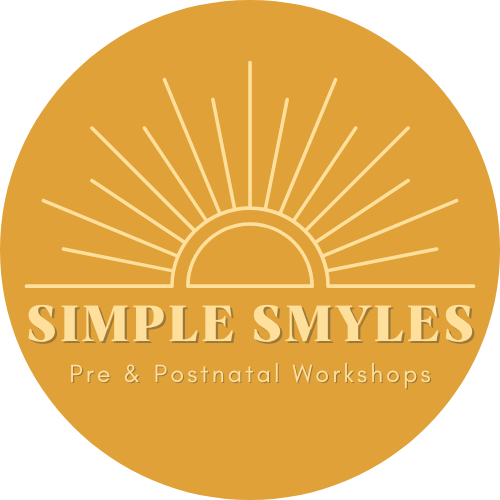Queer Pregnancy + Postpartum: Holding Space for All Family Stories
There is no single story of pregnancy.
There is no one way to become a parent.
And yet, so many queer families still find themselves left out of the picture when it comes to pregnancy, birth, and postpartum care.
At Simple Smyles, we believe in holding space for every family story — with softness, intention, and a deep respect for identity, lived experience, and love in all its forms.
Whether you’re a queer, trans, or nonbinary birthing person, a same-sex couple growing your family, or navigating donor conception, adoption, surrogacy, or chestfeeding — you deserve to feel seen and supported.
The Problem: A System That Still Assumes
Despite progress in language and visibility, many healthcare systems still center their care around cisgender, heterosexual narratives. This can show up as:
Forms that assume “mom + dad” only
Providers using incorrect pronouns or gendered assumptions
Language like “maternal” and “breastfeeding” without alternatives
A lack of cultural competency around queer reproductive experiences
Birth spaces that don’t feel safe for all bodies and families
For many queer parents, this leads to medical trauma, anxiety, invisibility, or the exhausting need to educate others during a time when they should be held with care.
What Inclusive Care Really Means
True inclusivity isn’t just about rainbow stickers in a waiting room. It’s about:
Language that affirms (e.g., using “birthing person,” “partner,” or “chestfeeding”)
Forms that reflect reality — diverse family structures, pronoun fields, open identity options
Spaces that feel safe — emotionally, physically, spiritually
Care that’s trauma-informed, anti-racist, and queer-liberatory
Providers who listen without assumption, judgment, or agenda
Inclusive care sees you. All of you. And celebrates the richness of your journey.
Real Talk: Emotional Layers of Queer Pregnancy
Pregnancy and postpartum come with layers for everyone — but for queer folks, there can be extra threads:
Grieving the lack of cultural representation
Navigating identity shifts in a world that doesn’t “get it”
Dealing with dysphoria, especially in medical spaces
Navigating family dynamics that may not be supportive
Constantly translating or advocating for your needs
These are real experiences. And you are not alone in them.
We believe it’s possible to hold joy, grief, pride, exhaustion, and transformation all at once. That’s the truth of many queer parenting journeys.
What You Deserve
You deserve care that honors your:
Pronouns and name
Parenting title (Mama, Baba, Papa, Zaza, Dada — all valid)
Body, regardless of how you identify
Family structure — polyamorous, solo, co-parents, trans families — ALL families
Choice in how you feed, birth, and recover
Right to feel safe, empowered, and celebrated
You also deserve not to have to explain yourself at every turn.
How to Advocate for Yourself (Or Support Someone Else)
If you're navigating this system as a queer parent or support person:
Ask providers how they practice inclusive care
Bring a support person or doula who understands your identity
Share your pronouns and birth preferences upfront
Make space for your own emotional needs — therapy, peer support, journaling
Find affirming spaces (like Simple Smyles!) that hold you without condition
Let’s Keep This Conversation Going
What’s your experience been like as a queer or LGBTQ+ parent or birther?
What made you feel safe — or unsafe? What helped you feel held?
Drop your story in the comments or send us a DM. We are always learning, listening, and making space for your voice. 💛
You’re Not Alone in This
You deserve to be cared for — not despite who you are, but because of who you are.
At Simple Smyles, we’re committed to building spaces and services that reflect the full beauty of our community. That means workshops, guides, and care rooted in intersectionality, inclusion, and joy.
You are welcome here. Fully.

